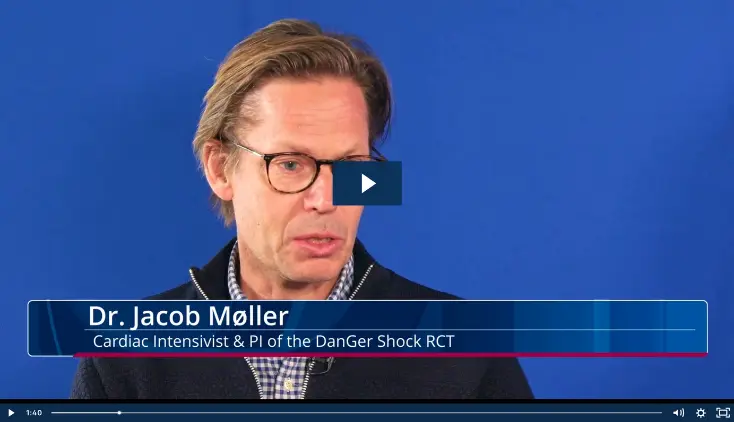Access & Closure, Algorithms, ECMO, AMI Cardiogenic Shock, Surgical Applications
The ECpella 2+ Concept
Prof. Dr. med. Evgenij Potapov discusses the “ECpella 2+” concept with Dr. Armin Alexander Klesius at the annual meeting of the German Society of Thoracic and Cardiovascular Surgery in Hamburg, Germany in February 2023. Prof. Potapov is head of mechanical circulatory support, Deutsches Herzzentrum der Charité.
The ECpella 2+ concept utilizes single arterial access for both ECLS and Impella 5.5® with SmartAssist® heart pumps rather than cannulation of both femoral arteries (one for ECLS and one for Impella device) as was initially done for “[ECpella]1.” Access for ECpella 2+ is obtained surgically with an axillary graft. ECpella 2+ can provide up to 12 L of blood flow to patients to overcome multi-organ failure in severe cardiogenic shock. This technique also helps reduce vascular complications and encourages mobilization. In addition, Prof. Potapov explains, “ECMELLA 2+ concept allows very easy escalation and de-escalation.” After 3-4 days of ECLS support, the ECLS cannula can be removed at the bedside from the Y graft without surgery.
ECpella 2.1 further encourages mobilization with implantation of the venous cannula though the right jugular vein. While Prof. Potapov explains that ECpella 2.1 “allows complete mobilization of patients and even walking around with the ECpella 2.1,” he notes that most patients with this configuration are weaned from ECLS before they even get up and walk around.
Regarding vascular compilations, Prof. Potapov reports that with ECpella 2+ he’s seen “dramatic reduction in complication rates,” pointing to surgical control of the axillary access to reduce bleeding complications. He explains that other complications, such as hemolysis, are also reduced because Impella 5.5® with SmartAssist® heart pump is easier to place, and its position is easier to compared to Impella CP® heart pump.
In Prof. Potapov’s opinion, “ECpella 2+ concept is the best way to help the patient with the tools we have now.” More than 70 ECpella 2+ procedures have been performed at his institution with more than 50% survival. Prof. Potapov explains that these are “very encouraging” results in these patients with very severe cardiogenic shock. Half of these patients are resuscitated, and one quarter are postcardiotomy heart failure. Mean lactate in these patients is 8 mmol/L. With ECpella 2+, Prof. Potapov emphasizes that 25% of patients have the device removed, weaned, and discharged home and 25% are transitioned to durable MCS. Other centers, he states, achieve only 20-30% survival with these patients.
Prof. Potapov concludes by highlighting 2 key principles underlying management of patients with severe cardiogenic shock: (1) Follow all standard operating procedures (SOPs) for cardiogenic shock at your institution, and (2) place MCS early.


